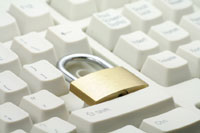 The Problem
The Problem
Every day thousands of windows based computers are infected by an assortment of Viruses, Malware and Spyware. These are the scary names given to different categories of malicious software whose sole purpose is to steal information or damage computer systems, normally for profit.
It is quite common these days for the uneducated home user to actually throw away a PC because they believe it to be broken. Machines can become so infected by these bits of nasty software that they simply stop working. In these cases, the idea of a virus or spyware infection is overlooked because the user assumes that their antivirus software was protecting them. Unfortunately, your antivirus or antispyware package cannot always be trusted to keep your PC safe. There are two main reasons for this:
- Malicious software is more advanced than ever before; many modern trojan systems are so well made and lightweight that they will disable bulky and cumbersome antivirus or antispyware software before they are detected.
-
The user willingly puts it there without really knowing what they are installing.
The second reason is sadly the most common and it allows malicious software makers to spread their wares with almost no resistance. The bane of busy IT departments and IT guys everywhere is the most seemingly harmless software packages that people install to try and spice up their office life. Everything from Icon packs and Smileys (the ones that whine “Hellooo”) to seemingly useful things like “Atomic clock synchroniser” and various virtual wallet applications, even the harmless looking Zwinki. All of these types of software generally carry a malicious or unsavoury payload. Normally (if they don't break your PC first) these bits of software serve to do everything from monitoring your surfing habits to forging advertising clicks so that the software maker can cheat advertisers out of revenue. Another trick is to show you adverts that wouldn't normally be on the website you are visiting thus doing the owner of the website out of their revenue.
Because this sort of software is badly made, it quite often leaves your PC open to further attack from even worse baddies who make something called malware. These are the guys who will hijack your computer and use it for their own nefarious needs. They literally recruit your PC into a Zombie army of infected machines which is used for everything from sending nasty spam emails to transferring and storing illegal data. Machines infected by malware also leave their owners vulnerable to credit card fraud and identity theft. Quite often, windows just breaks down under the stress of the infection and the user is left with a useless PC in dire need of a reinstall.
Prevention is better than cure
There are many ways to fix a PC after it has been all but destroyed by the snowball effect of an infection, but just like a human the best way to fight an illness is to make sure you don't get ill in the first place. Good antivirus and antispyware software is essential to keep yourself safe, but unfortunately it is never 100% reliable. The best way to keep your computer safe is to be aware of what you are installing onto it and to follow a few best practices. Here are some Do's and Don'ts to help you keep your PC healthy:
- Do make sure you run windows automatic updates. This ensures that your computer has the latest security patches.
- Don't install gimmick software, ie, Icon Packs, MSN smileys, free games packs, personal avatars (zwinki) or free screensavers. This kind of software claims to be free but actually makes good money by secretly installing malicious software.
- Don't use pirated software! Although it's tempting to use pirated software at home, it should be avoided. Pirated software quite often contains very malicious software payloads. Normally these payloads come hidden in serial number generators. If you cannot afford something, try using an open source equivalent. Instead of pirating MS Office, download Open Office instead: it's actually a better product and its free.
- Do browse the web safely. Microsoft Internet Explorer is notoriously unsafe. Try using something called Mozilla Firefox instead. Firefox was built from the ground up with safety in mind. Ask an IT person if you cannot install it yourself.
- Don't use dodgy software. If you use file sharing networks at home be careful which software you use. Clients like Kazaa, Limewire and E-Mule will damage your machine and leave you open to malicious software. Try open source clients like Azureus (bitorrent) and Nicotine (Soulseek) instead. As a rule, however, all file sharing can lead to disaster. Don't ever use file-sharing software at work as in most cases it is a dismissable offence.
- Do be vigilant. When you are installing new software, always keep an eye out for signs that you might also be installing undesirable software alongside the software you actually want to install. Often "free" software comes packaged with spyware, which you can normally tell because you will see a checkbox next to a line saying “Yes please install xyz dodgy software” during the install process. Free software that is safe to use is normally "open source" which means that the code is published for veryone to see and use.
If you follow this advice you will seldom run into computer trouble. Being aware of what you are installing is half the problem solved. Practice safe computing and you will never have to reinstall windows again.
Here is a list of free software that will help you keep your PC clean.
AVG Free Antivirus: http://free.grisoft.com
AVG Anti Spyware: http://free.grisoft.com
Mozilla Firefox (a safer alternative to Internet Explorer): http://www.firefox.com
The Google Pack (a bundle of free software from Google which includes a very good Antispyware package and a decent antivirus): http://pack.google.com

